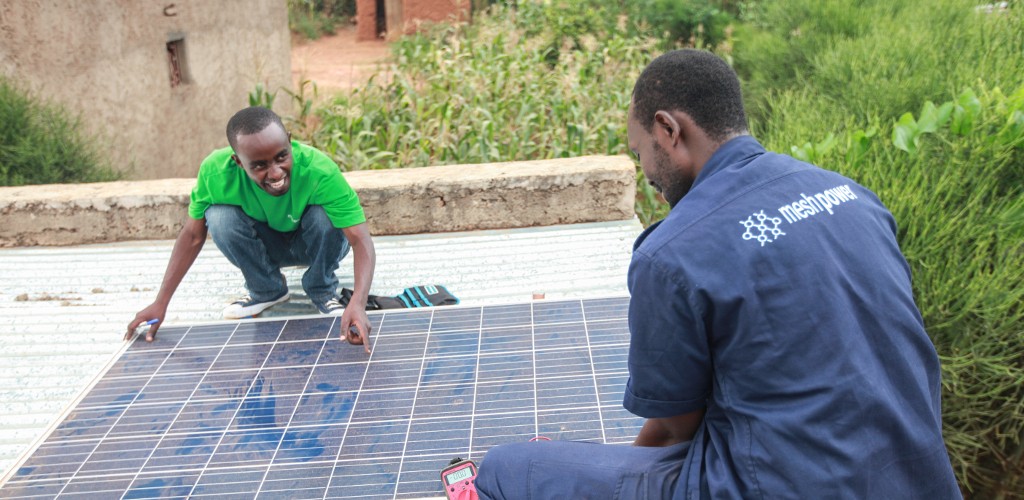
Social enterprises play a unique role in catapulting social, technological, and industrial development on the African continent. These organisations are driving inclusivity in traditionally overlooked markets, while also pushing to prove the financial viability of their business models. However, as hybrids of traditional for-profit and non-profit businesses, securing the necessary resources for growth and job creation often proves challenging.
The Social Enterprises as Job Creators in Africa report illuminates some of the unique challenges that African social enterprises have to overcome to deliver their social missions. The report focusses, in particular, on the employment potential of social enterprises in 12 African countries: Cote d’Ivoire, Egypt, Ethiopia, Ghana, Kenya, Morocco, Nigeria, Rwanda, Senegal, Tunisia, Uganda, and South Africa, between 2020 and 2030. Social enterprises within these countries had created 4,4 million jobs as of 2020 and have the potential to create an additional one million jobs by 2030.
Social enterprises can help companies and governments by providing innovative solutions to social challenges. Often part of their social mission is to address skills gaps and create employment. The report further highlights the need for extensive collaboration due to the unique needs and challenges that social enterprises face.
Here are three three key takeaways from the report.
The ‘missing middle’ of finance
The business models of social enterprise are generally built around solving societal challenges. Traditional financial institutions do not cater to the specific needs of social enterprises, as their risk models are unable to accommodate the type of risk exposure of these kinds of business models. This presents a unique challenge when it comes to accessing financial durability at all stages of the enterprise.
Social enterprises especially face a funding gap for requirements between USD30,000 and USD250,000. This has been dubbed the ‘missing middle’ in the social enterprise financing landscape. Only Senegal provides sufficient funding options for this ticket size. In addition, social enterprises cannot always rely on their customers’ ability to pay for goods or services - especially if their target market falls within poor and low-income communities. Without additional funding, their ability to launch or scale their products and services can be severely stifled. As a result, the employment potential that exists is left untapped.
To supplement this gap, impact capital and crowdfunding initiatives are being deployed across these 12 African countries. For instance, angel investors in Egypt invested USD2 million into various social enterprises in 2017. The job creation potential of Egyptian social enterprises is projected to grow by 19.6% between 2020 and 2030. The ecosystem is expected to create 1,4 million direct jobs compared to 1,2 million in 2020.
Crowdfunding initiatives are another budding approach to breaching this funding gap, although they still make up only 0.1% of crowdfunding deals globally. For instance, Nigeria traditionally has a funding gap for ticket sizes less than USD100,000. In response, the Nigerian government enacted the Lagos State Employment Trust Fund. Besides the government’s original contribution of USD33 million, additional funds are raised through donors, development agencies, corporate organisations and individuals. The Nigerian social enterprise ecosystem already boasts 1,45 million direct jobs created and has a projected growth of 29.7% by 2030.
Expanding technical support ecosystem
Whether the social enterprise is still navigating the early stage or has broken the ceiling to reach the growth stage, technical support is critical. This is particularly crucial once an enterprise outgrows the founder-run phase and begins building structures around governance, operational excellence, human resource management, and financial management. The emerging ecosystem of support organisations includes accelerators, incubators, and hubs. Their services may range from mentorship, business development, training, workshops, and networking opportunities. However, access to investment-readiness support and the capital necessary to create jobs, remains scarce. In several of the countries profiled, such support is either focussed on specific industries or non-existent.
Of the 12 countries profiled, only Kenya, South Africa, and Egypt were identified as having ‘strong’ technical ecosystems. Egypt boasts 55 technical support organisations concentrated in Cairo, although social enterprises outside Cairo have a very limited support network. Kenya has a network of 120 organisations, although these lean towards tech-enabled business models. South Africa has the most diverse support ecosystem that spreads across its nine provinces. These technical support networks offer capacity building, advisory services, and networking opportunities to social enterprises.
To spur job growth, African social enterprises can benefit from additional strategic partnerships with technology providers and expert networks.
Creating enabling environments
In many African countries, social enterprise ecosystems suffer from weak institutionalisation. This refers to the enactment of “Social Enterprise Bodies” to represent such organisations in the public and private sectors and to raise awareness of their unique challenges and needs. There is very little lobbying and collective influence for policies and laws that are beneficial to social enterprises and raise public awareness of their activities. This level of cooperation can serve as an important vehicle for influencing national and regional policies that enable the sustainable growth of social enterprises. Such bodies can also serve as forums for knowledge-sharing and promoting collaboration.
Firstly these bodies create an increased awareness for social enterprises which is beneficial for attracting the relevant funding for growth. As enterprises grow, they create employment opportunities which will then absorb the 10-12 million youth talent pool entering the job market annually.
Secondly, putting favourable laws in place creates the platform for such enterprises to continually improve their work environments and offer attractive employment opportunities.
So far, only Tunisia, Ghana, Rwanda, and South Africa have successfully created what can be regarded as ‘strongly’ enabling environments. These environments enable social enterprise development and growth through strong policy, favourable taxation, and the establishment of social enterprise industry bodies. In South Africa, for example, social enterprises qualify for tax exemptions on grants and donations. Although Rwanda similarly offers preferential taxation for social enterprises, this benefit is only limited to the energy and ICT sectors. In such environments, social enterprises are able to use these additional resources to grow their businesses and create additional jobs.
Read the report
Read the full Social Enterprises as Job Creators in Africa report by Siemens Siftung, with five mini case examples included.
By Thabile Bhengu


















